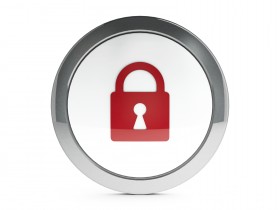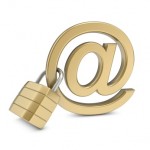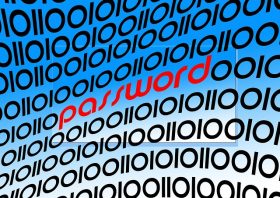Email security remains a top priority for most IT Departments and especially as GDPR approaches. Here are five top ways to improving email security in your organisation and make sure you are not the one to open the door to the cyber-criminal.

Concerned about any of these points? Call us now to discuss how Mesmo Consultancy’s Smart Email Management masterclasses and workshops can help improve email security.
Tags: cyber crime, email security, GDPR, password protection, Word documents and malware
Even prior to the TalkTalk hack, password protection and the on going stream of email spoofs were a significant focus of the last few months. The latter are always phishing to relieve you very cheaply and easily of your hard earned money.
Tags: Articles of note, cybercrime, out of office message, password protection, Spam, Spoof emails, TalkTalk
How well do you protect your on-line reputation to avoid an email disaster? The hacking of Ashley Madison website (the dating agency) provided some statutory lessons about how one’s reputation can be destroyed in a nano second. In a nutshell, this well known dating agency’s data was hacked. Details of about 33 million accounts were released including peoples sexual preferences and fantasies linked to their email address. They also cracked passwords and credit card information.
What made people and business’s more twitchy than usual was that names were associated with companies, because many were silly enough to use their business email address. Technology companies listed included Apple, HP, IBM Sony, Snapchat and Vodafone. Many others were Government officials and household business names.
As a result we have seen some people resigning from their jobs and at least one suicide.
This highly visible hack provides several very pertinent lessons both for us as individual users and corporately for the business. None are new. Perhaps the surprising fact is that so many people continued to forget to bolt the door securely on their on-line identity until it is too late.
Lesson 1 – never use your business email address for anything other than business unless it is an emergency. Use a personal email address for all social emails.
Lesson 2 – be very vigilant about what information you post on websites because In reality nothing is private on the internet. Several people paid to have their profile removed but it still turned up.
Lesson 3 – before hitting send and posting information think about the consequences to yourself should someone else find it, for example either through hacking or worse still close friend or partner.
Lesson 4 – set strong passwords. One survey revealed that over 120 people use simple ones like 123456. Click here for more about password management.
Lesson 5 – spend time developing a crisis management plan whether for your business or self in the event of such a disaster.
This won’t be the last high profile hack but hopefully some will take these five lesson seriously and especially use their business email address more cautiously to manage their own and their company image more carefully.
Call Mesmo Consultancy now to discuss how we have helped our clients to improve the management of their on-line reputation to avoid an email disaster like this and the Sony email disaster.
Tags: Ashley Madison, email disasters, email reputation, Hacking, Mesmo Consultancy, Password Management, password protection
The recent hacking of the Adobe website is a salient reminder of the need to remain vigilant about protecting ones personal information on-line. One of the most stark factors to emerge was the number of very weak passwords used by people. Email security and internet security depends in part of having strong passwords and being vigilant about what you post on social media sites. A recent report revealed that the most common passwords were ‘123456’ (190,000+ users) and ‘123456789’ (46,000+ users).
Creating a strong password is really quite easy. Think of a meaningful sentence and then take the first letter of each word and use it to construct a password. Turn a couple of letters into capitals/symbols and add in a couple of numbers and you have a strong password. For example:
In my youth my favourite singer was Leonard Cohen. A password might be 1mYMf3Wlc!

Email security
Three other top tips to follow to improve your email security are:
1. Password protect important attachments.
2. Do not put confidential information in the body of an email, rather either convey the information verbally or in a password protected attachment. Click here for an example of what can otherwise go wrong.
3. Remember that despite your best efforts email evidence is very rarely destroyed. Someone somewhere will always have a copy.
For those managing a business (no matter what size) a key part of your email and internet security must be your Acceptable (computer) Usage Policy (AUP). It must be up-to-date to take account of changing technologies, and you must have evidence that everyone has read and accepted its conditions.
Click here to access our free on-line tool to benchmark just how robust is your current AUP. Mesmo Consultancy have helped many clients improve their email security and reduce the risk of leaking sensitive and confidential information. Call us now for a free consultation and review about how vulnerable your business is currently (+44 (0)1202 434340) .
Tags: acceptable usage policy, email security, Hacking, Mesmo Consultancy, password protection
How good is your email security? Cyber crime is now a tier one priority for government and business. Sloppy use of email is one of the most common ways to leak important information and open the door for the cyber criminal.
Improving your email security is one of the first steps to managing the risk of a cyber attack.
Here is a summary of the top tips Dr Monica Seeley (Mesmo Consultancy) discussed on the Geoff Carter Show on HotRadio 102.8FM on Wednesday 04 April
For more email security tips like these subscribe to Mesmo Consultancy’s monthly ‘E-briefing.’ For your free review of your company’s Computer Acceptable Usage policy please contact us by phone on 01202 43 43 40 or email.
Tags: cyber crime, email security, password protection